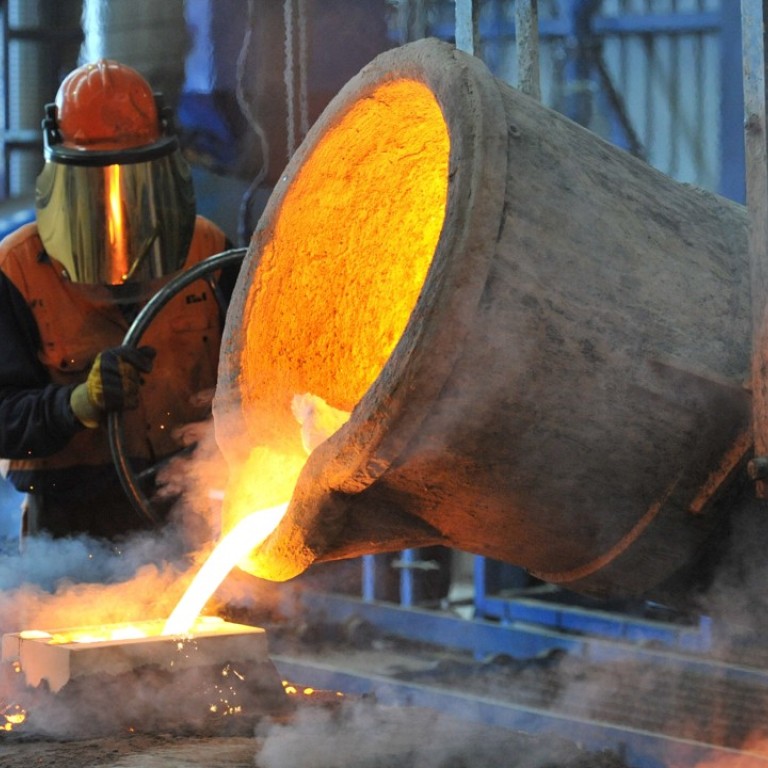
Australia, the canary in Asia’s trade coal mine, may rue its slow escape from China’s sputtering economy
Did S&P just put a curse on Australia? The reference here is to the credit-rating equivalent of the magazine-cover jinx that companies and entire economies struggle to avoid.
On Friday, S&P made headlines by upgrading the outlook Down Under, reckoning that Canberra’s budget surplus will reappear by the “early 2020s.”
Great news for new Prime Minister Scott Morrison as he struggles to find his economic sea legs, you might say. It could just as easily signal a reverse karma effect – one with implications for Asia’s growth trajectory.
Granted, Morrison’s treasurer, Josh Frydenberg, forecasts a return to the black around 2020 if Australia can extend its run of 27 recession-free years.
But there are two gaping “ifs” standing in Canberra’s way: Donald Trump and Chinese demand for iron ore, copper, coal and Australia tour packages.
In one way, these two spoilers are connected. It’s US President Trump’s escalating trade war that is tossing China off balance.
Far from stepping back, Trump last week upped the ante - to US$250 billion of Chinese goods, and counting. This puts Australia in harm’s way. Its resource-rich economy is arguably the world’s biggest leveraged bet on China maintaining a growth rate as close to 7 per cent as possible.
This is Asia’s problem, too. As China’s export engine sputters, collateral damage will include Japan’s nearly six-year reflation battle, South Korea’s efforts to catalyse a start-up boom, Singapore’s tab at increasing productivity and Indonesia’s progress in moving upmarket. Hong Kong’s desire to curb inequality also might be set back as mainland growth slows.
Yet “if” No 2 also matters. For all President Xi Jinping’s talk of giving markets a “decisive” role in policy decisions, steps in that direction have been glacial. While “Made in China 2025” and the “Belt and Road” gambit get the headlines, an equally important narrative is how Xi’s team is doing more stimulating than recalibrating growth engines.
China, though, is running into what economists call the “diminishing returns” problem. That is the moment when tens of trillions of dollars of credit, debt issuance and central-bank largesse lose potency. If China is reaching the limits of stimulus, as all industrialising nations do, it’s coming just as Trump puts the full weight of his government behind tackling Xi’s economy.
Australia’s great sensitivity to China’s zigs and zags makes it a canary in Asia’s trade coal mine. Australian housing prices, for example, fell for an 11th straight month in August. The Westpac Melbourne Institute Consumer Sentiment index dropped to -0.02 per cent in August from 0.5 per cent in July, putting the closely-watched measure below trend.
In recent months, Reserve Bank of Australia Governor Philip Lowe named Trump’s policies the biggest risk to the global economy. That goes, too, for Australia’s quarter-century-plus growth marathon. One reason Australia raises alarms: it’s been so impervious to global fallout, but it’s now vulnerable. It avoided the worst of the early 2000s tech crash and 2008 global financial crisis. Australia sailed around the 2013 Federal Reserve “taper tantrum.”
Open Asian economies Singapore, Korea and Taiwan are plenty sensitive to Chinese demand shifts. But Australia is that oddest of things: a first-world AAA-rated economy in the Asian region that is stood its ground for nearly three decades.
And by S&P’s telling, Canberra can expect “steady” government revenue growth, along with a “strong labour market and relatively robust commodity prices.”
Clearly, the government agrees wholeheartedly. “The economy,” says Frydenberg, “is seeing its fastest rate of growth since the height of the mining boom in 2012.”
Yet busts follow booms. And Australia may soon curse its slow-walking of efforts to diversify the economy away from a China that may lose its balance.
William Pesek is a Tokyo-based journalist and author. He has written for Bloomberg and Barron’s

